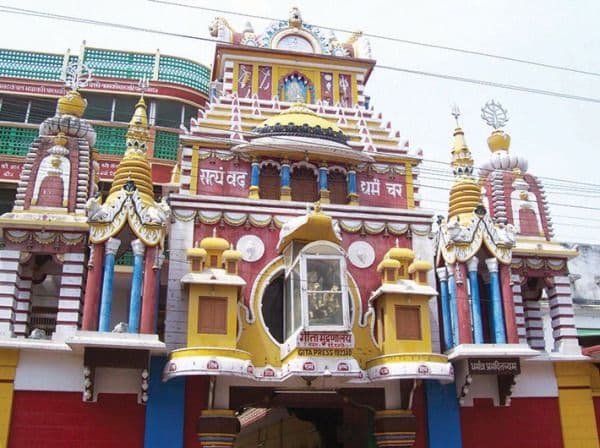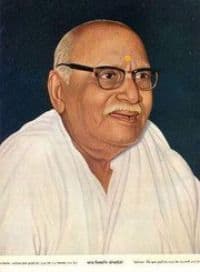Gita Press
Gita Press is the oldest and biggest Indic publisher of India based out of Gorakhpur.
Gita Press was established in 1923 by JD Goyanka. Hanuman Prasad Poddar was its founding editor. Its first journal Kalyan was published in 1927. While most journals of this period are confined to libraries and archives, Gita Press and Kalyan still exist with millions of copies. Unless other publications, Gita Press publishes its books at a very reasonable price. For example, a Bhagavad Gita can be procured at Rs.30. A copy of Hanuman Chalisa costs just Rs. 2 (50 lakh copies printed every year).
Gita Press was not founded to be a profit-making enterprise. Its goals were something very different. Gita Press was founded at a time when Christian Missionaries were making rapid progress in converting Hindus. They were making all-out attacks on Hinduism. Missionaries used to distribute copies of the Bible to anyone who shows the slightest inclination to accept it. Bibles were flowing.
By contrast, except for a few Pandits who were specialists in the field, an ordinary Hindu did not have any printed copy of any of his books. Ordinary Hindus did not have any good knowledge of his own Dharma books. Gita Press was founded only to propagate and defend Dharma.
In addition, a majority of Hindus in this period were not literate. They simply could not read. Hence, in addition to printing books, Gita Press also used to organize several Kathas(Oral narration). Their Kathavachaks would read & narrate the great Epics Ramayana and Mahabharata.
The head Kathavachak of Gita Press was Kripashankar Ramayani. He used to tour village to village. Gather people around in the evening after work and recite the Ramcaritmanas (there was no night shift in those days). His salary: 0 (food and travel was organized by Gitapress)
And what was the success of Gita Press: It was astounding. As of 2014, they sold more than 72 million copies of Gita, 70 million copies of Ramcharitmanas, and 19 million copies of Puranas. Gita press is easily the biggest publisher in India. It dwarfs others by its sheer numbers.
Anybody who has visited Gita Press House at Gorakhpur would simply be awestruck at its simplicity. There is no centralized air conditioning even. Why? Because Gita Press never accumulated profits. Any profit was spent on publishing and circulating books & recruiting Kathavachaks.

The founding editor of Gita Press was Hanuman Prasad Poddar. At the age of 22, Hanuman Prasad Poddar was arrested and held guilty of supplying arms to revolutionary Indian Freedom fighters of Anushilan Samiti who wanted to liberate India and waged direct war against the British.

After Hanuman prasad was arrested & released, he was shunned by his own community. Nobody wanted to associate with a person who supplied arms to Indian revolutionary freedom fighters. Poddar’s community engaged in business. They did not want to ruffle feathers with the British. Boycotted and shunned, Poddar then left his native Kolkata and migrated to Mumbai. In search of a Job. The great man who built India’s greatest publishing house from scratch was once unemployed.
In contrast to millions of copies of Ramcharitmanas, there are hardly any Gita Press publications on their own founding editor. Why? The answer lies in the Motto of Gita Press. Hanuman Prasad Poddar used to say- “I never sanction self-praise”. “Gita Press shuns self-praise and worship of Individuals”. Hanuman Prasad Poddar was recommended for Bharat Ratna by then home minister Govind Ballabh Pant. But to the surprise of Pant, Poddar flatly refused it. All his life, Poddar refused any felicitation.
Yet, Nehru hated Gita Press and did everything in his power to shut down Gita Press. He even arrested Hanuman Prasad Poddar alleging involvement in the assassination of Gandhi. Poddar was jailed. Birla refused to help Poddar and accused the Gita press of propagating “Shaitan Dharma”. As a result of this, while millions peruse the Gita Press publications, we hardly know anything about them. Whatever information available about Gita Press whether online or otherwise is mostly its evaluation by parties and individuals extremely inimical to it. Poddar was ordered by the court to be released in the very next hearing, because, according to the court, “there was not a shred of evidence of his involvement in the assassination of Gandhi”.
From 1949, Poddar played a very active part in the Ram Lalla movement to worship Ram Lalla idols inside Babri. He was also lathi-charged by the administration. He donated his entire life savings to establish/enable Ram Janmabhumi trust to fund Pujaris & court cases until his death.
Source: https://twitter.com/TIinExile/status/1297937769998635008 and https://twitter.com/BharadwajSpeaks/status/1387685077010714632